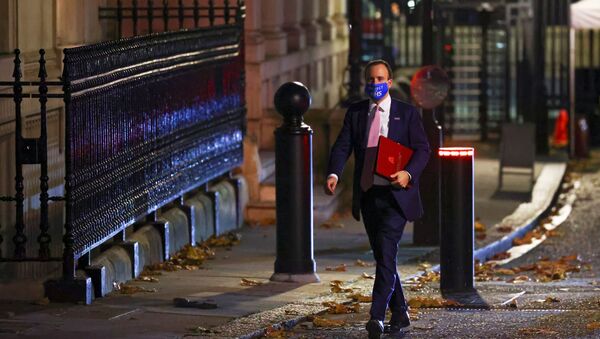Scientists are trying to establish whether the rapid spread in southern England of a new variant of the virus that causes COVID-19 is linked to key mutations they have detected in the strain, according to Reuters.
The outlet says that the mutations include changes to the "spike" protein which the virus uses to infect human cells, but it is still unclear whether the mutations are making it more infectious.
“Efforts are under way to confirm whether or not any of these mutations are contributing to increased transmission,” the scientists, from the COVID-19 Genomics UK (COG-UK) Consortium, said in a statement.
What is the new #SARSCoV2 variant associated with a lineage spreading rapidly in the South East of England? Read our latest post to learn more and stay tuned as we provide updates as investigations proceed📝 https://t.co/7kRhK6Hok7 pic.twitter.com/9ASjzvTCGU
— COVID-19 Genomics (COG-UK) Consortium (@CovidGenomicsUK) December 14, 2020
British virologist Dr Chris Smith told BBC Breakfast that, despite being spread more quickly, the new variant of coronavirus may not be any "nastier" despite the mutation in the spike protein.
"Once it infects you, once it gets in you, it doesn't actually make you any iller," he said.
"That appears to be the pattern at the moment and the other crucial question at the moment is 'Is that change sufficient to side-step what the vaccine does to protect us?'"
Virologist, Dr Chris Smith explains why viruses mutate after a new variant of #coronavirus was found in parts of England ⤵️https://t.co/liFzyA3cU1 pic.twitter.com/cEwZoa4fIP
— BBC Breakfast (@BBCBreakfast) December 15, 2020
Health Secretary Matt Hancock told the Commons on Monday that the Government had seen very sharp, exponential rises in the virus across London, Kent, parts of Essex and Hertfordshire during the past week.
Because of this increase, Hancock said the Government was forced to move London and parts of Essex and Hertfordshire into the highest level of coronavirus restrictions - Tier 3 - from 16 December.
The move will see thousands of bars, pubs, cafes and restaurants close in the capital and surrounding areas in an attempt to curb the virus spread.



